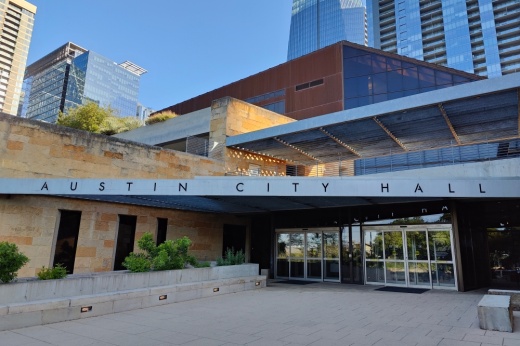What's happening
The early April release of a financial forecast for Austin's next five years came a few months before the summer budgeting process. Austin City Manager T.C. Broadnax is expected to release his draft spending plan in July, followed by a series of City Council discussions and public hearings before it's adopted in August.
Residents can now weigh in on the budget online. As that fiscal year 2025-26 planning ramps up, city financial staff found Austin could be nearly $6 million short in current FY 2024-25 revenue thanks to lower-than-expected sales and alcoholic beverage tax collections.
Looking ahead, a slowdown in local job creation and new development, the end of federal stimulus money, and factors like inflation, economic instability and a possible recession could contribute to annual budget gaps reaching $80 million by FY 2029-30.

City Manager T.C. Broadnax said staff will continue to refine those projections and look to reallocate funding in line with City Council and community goals.
“Given the uncertainty in the global and national economy and the effect of property tax caps, we knew we’d be facing headwinds this year. We’ve prepared for them and will adjust as necessary,” he said in a statement. “My job is to present a balanced budget for the City Council’s consideration in July, and we will get there while keeping the priorities of our community front of mind.”
Zooming in
The new forecast also included a look at likely impacts on Austin residents over the next few years. City taxpayers are likely to continue paying more in taxes, utility charges and other city fees through the decade, before accounting for even higher property taxes that could be imposed through local elections to raise more revenue. City officials are reviewing that possibility and could finalize a new policy for Austin tax rate elections in May.One factor affecting finances in the near term is a likely dip in total property values across Austin, based on preliminary reporting from the Travis Central Appraisal District. A record number of appraisals are also being protested and property value growth is slowing, city staff said, leading to tens of billions of dollars less in taxable value for FY 2025-26 compared to this year.
Erik Nelson, division chief in the budget office, noted the increasing role property taxes now have in city finances. As of 2010, they made up less than 38% of revenue in the general fund—supporting public-facing city operations like safety, parks, housing, libraries and public health—but now cover nearly half of that spending including cost drivers like a higher minimum wage, rising pay under new labor deals, and employee insurance and retirement plans.
With sales tax revenue already lower than expected, and a potential drop-off ahead if the economy leads to lower consumer spending, budget office director Kerri Lang said "tough decisions" could lie ahead. For now, she said staff are trying to be flexible with available finances.
“It is going to be continued conversation about what are the priorities of the city, what things do we need to continue doing and what things do we need to consider doing a little bit differently?" she said.
What they're saying
City Council members responded to the "sobering" and "concerning" financial report during an April 8 review. Coupled with the loss of tens of millions of federal dollars, Mayor Pro Tem Vanessa Fuentes said officials now face more challenging decisions about the best way to maintain city services and priority initiatives.
“We find ourselves in real financial pressure for this upcoming budget cycle, and the needs of our community are great and they are increasing as more services are cut at the federal level," she said.
Council member Ryan Alter shared a similar sentiment, but said he believes the city should still find ways to make significant investments in people and services despite the "doom and gloom" forecast. He referenced the American Rescue Plan Act and its support of public health, homelessness and economic development initiatives in Austin as an example of a funding boost that helped residents.
“We know the federal government is not going to do it, we know the state’s not going to do it," he said. "It is incumbent upon us to recognize that, yes times are tough and we need to be responsible with the dollar, but we’re the last line."

“We have a lot of ETJ, [and] a lot of ETJ that now has increased ability to de-annex from the city of Austin, creating inefficiencies for us at a time that we’re looking for efficiencies. ... They have already become densely populated, more urban-suburban type of development and they’re buying back all of these services, and they’re not taxed," she said.
Mayor Kirk Watson said any potential annexation discussions would have to come after further review of recent legislative action at the state Capitol, and cautioned against tying that proposal to city revenue discussions.
“We probably should never say, ever, that we want to annex just so we can pick up your taxes. And for the record, we didn’t," he said.
Council members will continue discussing city financial issues during upcoming meetings of their Audit and Finance Committee, where the tax rate election policy could be finalized in early May. FY 2024-25 budget work sessions will be held in late July and early August before the plan's adoption starting Aug. 13.





